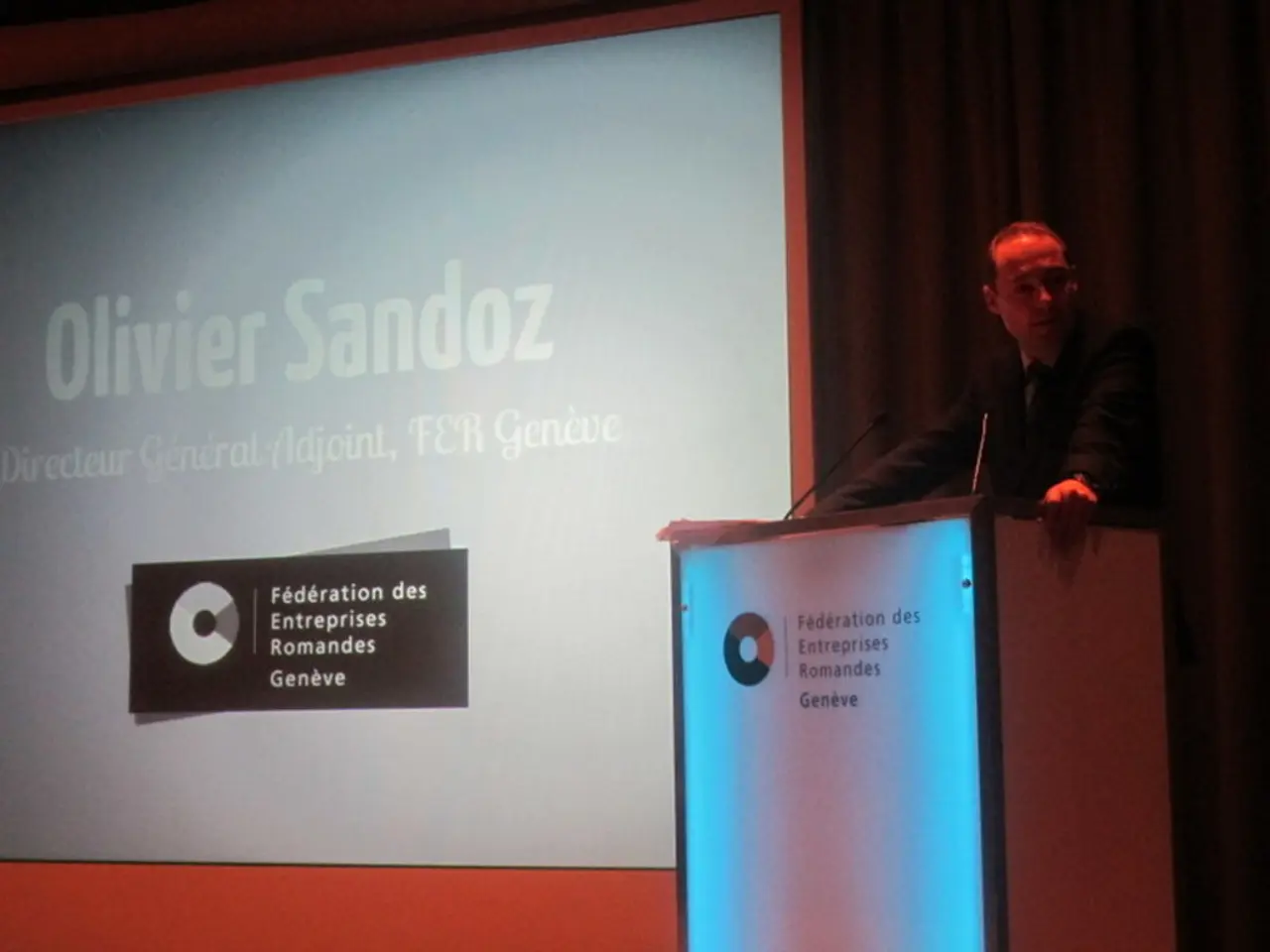Artificial Intelligence developed by Microsoft's Azure can generate convincing deepfakes from minimal audio input in a matter of seconds.
In the rapidly evolving world of artificial intelligence (AI), a Palo Alto-based startup named Zyphra has made waves this year by unveiling open text-to-speech models that require only a few seconds of sample audio to generate voice clones. This groundbreaking feature can be utilised for customising chatbot voices, among other applications.
However, as AI voice cloning services like Microsoft’s Azure AI Speech and Zyphra’s text-to-speech models gain traction, the question of safeguards and regulations has become increasingly important. Current protections primarily revolve around state-level right of publicity laws, contract law, and consumer protection statutes, due to the significant limitations of federal trademark and copyright laws in this area.
Recent legal cases, such as Lehrman v. Lovo, Inc. in 2025, serve to highlight these dynamics. In this case, professional voice actors sued an AI voice cloning company alleging unauthorized use of their voices. Although most claims based on trademark and copyright law were dismissed by the federal court, claims under state right of publicity laws—such as those in New York’s Civil Rights Law Sections 50 and 51—and consumer protection laws were acknowledged as proceedable. This reflects a broader trend where federal intellectual property laws do not comprehensively protect an individual’s voice from AI cloning, pushing plaintiffs to rely on state-level statutes and contract law remedies.
Key points about safeguards and regulations include:
- Federal laws (copyright, trademark) generally do not recognise voice as protectable subject matter for AI cloning, limiting enforcement under these statutes.
- State right of publicity laws provide the most direct legal protection against unauthorized commercial use of an individual’s likeness or voice; however, these laws vary by state and are not uniformly applied nationwide.
- Contractual agreements and consumer protection laws can provide additional safeguards, particularly to regulate consent in data collection and usage for training AI voice models.
- Courts are recognising the need for nuanced legal approaches to protect identity rights in digital and AI contexts, but comprehensive federal legislation specific to AI voice cloning remains absent as of mid-2025.
Regarding Microsoft’s Azure AI Speech and Zyphra’s text-to-speech models specifically, while detailed public disclosures of their compliance measures are limited, industry practice generally requires obtaining explicit consent from voice actors or license holders before cloning voices, maintaining transparency about use and distribution of AI-generated voice content, and adhering to contractual terms and applicable state laws governing publicity rights.
Microsoft’s Azure AI Speech has recently introduced a personal voice feature that requires explicit consent from the original speaker and discloses synthetic content. This feature can be used for dubbing video content in an actor’s original voice across multiple languages. The personal voice feature became generally available on May 21, 2024.
Despite these measures, AI voice cloning has outpaced safeguards, becoming a serious problem. The personal voice feature offers more natural-sounding and expressive voices, maintains better pronunciation accuracy, and generates audio in over 100 supported languages. However, there is a potential for the system to be used for malicious or deceptive purposes, such as producing audio deepfakes.
Indeed, the FBI has warned that scammers are using deepfaked voices of senior US government officials as part of a major fraud campaign. This underscores the need for continued vigilance and the development of more robust regulations to address this growing concern.
In March, Consumer Reports called out four companies offering AI voice cloning software for lacking meaningful safeguards. As the technology advances, it is crucial that companies prioritise transparency, consent, and ethical use to ensure the benefits of AI voice cloning are realised while minimising the risks.
In conclusion, the current regulatory framework is a patchwork of state laws and contract enforcement, with ongoing litigation likely to shape future regulation. There is no comprehensive federal regulation explicitly governing AI voice cloning, but the evolving judiciary interpretation under state publicity laws and consumer protection statutes currently form the main legal safeguards. As AI voice cloning continues to evolve, it is essential that regulations keep pace to protect individuals' rights and maintain trust in this burgeoning technology.
[1] https://www.law360.com/articles/1425561/ai-voice-cloning-cases-highlight-limitations-of-federal-ip-laws [2] https://www.forbes.com/sites/bernardmarr/2022/10/18/how-ai-voice-cloning-is-changing-the-world-for-better-and-worse/?sh=63905a2f681c [3] https://www.lexology.com/library/detail.aspx?g=12b16c8a-1c8b-440e-88c2-4c2724908c1b [4] https://www.nytimes.com/2025/02/28/technology/ai-voice-cloning-lawsuit.html
- The rise of AI voice cloning services, such as those offered by Microsoft's Azure AI Speech and Zyphra, has brought into focus the need for robust safeguards and clear regulations, as federal laws do not fully protect an individual's voice from unauthorized cloning.
- Currently, state right of publicity laws, contract law, and consumer protection statutes provide the most direct legal recourse against unauthorized commercial use of an individual's voice, although these laws vary by state and are not uniformly applied nationwide.
- As the AI voice cloning technology advances, it's crucial for companies to prioritize transparency, consent, and ethical use to ensure the benefits of the technology are realized while minimizing the risks, such as the potential for deepfakes and other malicious purposes.




